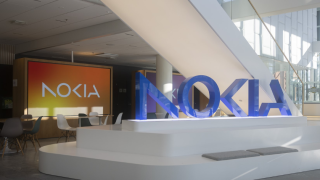The company said this morning that sales in the second quarter were 62.5 billion Swedish kronor (€5.89 billion), compared with 54.9 billion in the same quarter a year ago.
President and CEO Börje Ekholm (pictured) said there is more to come: “Our strategy targets a higher growth trajectory as we aim to grow our core mobile infrastructure business and capitalize on the fast-growing enterprise market.”
A year ago Ericsson’s second quarter results were affected by the company’s sales decline of 2.5 billion kronor in China, fallout from the US-China dispute over Huawei.
A year on, Russia’s attack on Ukraine will also have an effect. Ekholm said: “The geopolitical situation has also required proactive investments to de-risk our supply chain and ensure that we can deliver on our strategy to gain footprint. The global supply chain situation remains challenging and inflationary pressures are strong.”
He said Ericsson has adjusted its structure “to strengthen execution of our strategy to be a leading mobile infrastructure provider and to establish a focused enterprise business. Consumers, enterprises, and society will be digitalized through 5G in a way we have not seen before. With our strategy, we are in a position to capture these opportunities to enable further growth.”
Ekholm referred to Ericsson’s Iraq bribery case that the US government is investigating. Last month the company issued a terse, 70-word statement to acknowledge that the US Securities and Exchange Commission (SEC), the financial regulator, had begun an investigation into the Iraq affair.
The possible options for Ericsson are a fine on top of the $1 billion paid in 2019 deferred prosecution agreement (DPA), when it admitted to a different set of corrupt practices – or a full-blown prosecution that could lead to years of embarrassing revelations and perhaps an even higher fine.
Ekholm simply said today: “We continue to engage with the [US] Department of Justice and the Securities and Exchange Commission in relation to the 2019 Iraq investigation report and the DPA breach notices. The outcome of these matters cannot be assessed at this point in time. We are fully committed to cooperating with the US authorities.”
On the positive side Ericsson has absorbed Cradlepoint into its dedicated networks unit “to capture the growing needs for enterprise solutions”, he said. “The enterprise segment will also include the global network platform, which we believe will create a paradigm shift in the industry as the full capabilities of the network will be exposed to the global developer communities and enterprises.”
At the same time, it is in the later stages of buying Vonage, once a cheap internet calling company but now an enterprise cloud provider, for $6.2 billion in cash.
“The intended acquisition of Vonage is an important building block, and we are working to secure approval and close the transaction before end of July,” said Ekholm.






